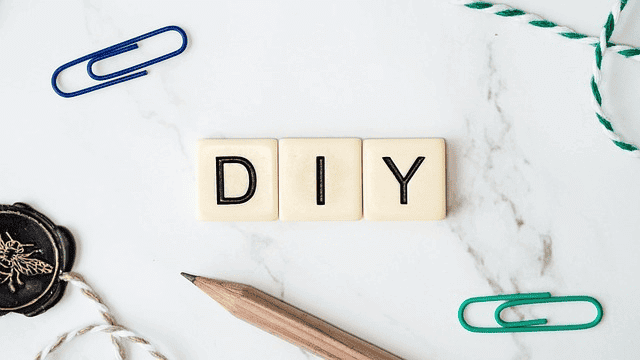
Estate planning is a crucial aspect of ensuring that our loved ones are taken care of and our final wishes are fulfilled. While drafting a will may seem like a simple task, the truth is that using a do-it-yourself (DIY) approach can lead to a host of complications, such as invalidity, overlooking important details, and lack of legal expertise. In this blog post, we will delve into the hidden pitfalls and risks of DIY wills and explore the advantages of seeking professional assistance, as well as alternatives that can provide tailored and legally sound estate planning.
Navigating the complexities of estate planning on your own can be a daunting task. With state law variations, inadequate provisions for complex estates, and the risk of invalidity, it is clear that a DIY will may not be the best option for everyone. Don’t let the temptation of saving time and money with a DIY approach put your estate and loved ones at risk. Read on to understand why professional assistance is invaluable in ensuring your final wishes are carried out as intended and why you should avoid using do it yourself wills.
Key Takeaways
- DIY wills carry hidden risks and pitfalls, making professional assistance essential to ensure legal accuracy.
- Professional help provides tailored estate planning, legal support, and peace of mind for the creation of a will.
- Alternatives such as online services or hybrid approaches offer convenience with cost savings. Attorney consultations provide legally sound wills that protect estates and loved ones.
The Hazards of DIY Wills

Creating your own will, whether online or through a DIY template, may seem cost-effective and straightforward, but it can lead to unintended consequences. The risks associated with DIY wills include invalidity, overlooking important details such as debts and taxes, and not accounting for state-specific laws and regulations.
Without legal expertise, the court could be left puzzled, resulting in alternative solutions that might not match your final wishes. It’s not wise to take a risk with your estate; contemplate the hazards of DIY wills and the advantages of professional advice instead.
Risk of Invalidity
DIY wills that are poorly written are like a time bomb, poised to cause chaos in your estate and among your loved ones. If a will is deemed invalid because it doesn’t comply with the legal requirements of your state, your assets may be subject to intestate estate distribution, which could lead to disputes among heirs. While the legal requirements for a valid will may vary by state, common requirements include a testator of legal age and sound mind, a written document, and proper witnessing and signing by at least two witnesses who are not beneficiaries of the will. Unfortunately, DIY wills, including online wills, are more susceptible to being ruled invalid due to drafting errors, incorrect legal terminology, or inappropriate execution.
The consequences of an invalid will can be far-reaching and distressing for your loved ones. Intestate estate distribution can lead to:
- Disputes among family members
- Delays in the distribution process
- The possibility of your estate being distributed in a way that does not align with your wishes
Don’t leave your last will to chance; seek professional help to guarantee your will’s validity.
Overlooking Important Details

A DIY will may not address crucial matters such as debts, taxes, and guardianship, which can create complications for your loved ones. Neglecting to consider your outstanding debts in a DIY will can have detrimental effects, such as impaired credit, collection efforts, additional fees, and escalating interest on the debts. Moreover, neglecting to properly address tax obligations can lead to legal issues, penalties, and a reduced inheritance for your heirs.
Overlooking essential details after a person’s passing can lead to unresolved legal and financial issues, as well as confusion and disputes among family members regarding the deceased person’s wishes and intentions. Furthermore, overlooking details can delay the probate process and prolong the grieving period for those close to the deceased. Seek legal advice and steer clear of DIY will pitfalls to make sure your will covers all relevant aspects of your estate.
Lack of Legal Expertise
One of the most significant risks with DIY wills is the lack of legal expertise. Without a thorough understanding of state-specific laws and regulations, you may unintentionally disregard a statute or regulation in your state, causing confusion for the court as it searches for alternative solutions. This lack of expertise can result in errors and omissions, ambiguous language, and the use of outdated or incorrect legal terms. Moreover, your will may not be enforceable under state law and may fail to take into account relevant legal issues such as taxes and beneficiary designations.
Avoid risking your final wishes due to a lack of legal knowledge. Engage an attorney to ensure your legal will, also known as your last will and testament, is legally robust and addresses all pertinent laws and regulations for your and your loved ones’ peace of mind.
Real World Example
When Bryant resident Greg’s father passed away, he knew he needed to create a will for his family. Greg considered using an online template to save money, but rightfully worried about risks like legal invalidity. Not sure of the best approach, he scheduled a consultation with an estate planning attorney at the WH Law Little Rock office.
Our lawyer explained to Greg that DIY wills often overlook critical details and lack tailored provisions for unique family dynamics. Without legal expertise, Greg could unintentionally create an unenforceable or ambiguous document putting his estate at risk.
Instead, we suggested working together to craft a customized will accounting for all Greg’s assets, debts, and Arkansas-specific laws. Though a little pricier upfront, the lawyer’s involvement would prevent massive headaches for Greg’s family down the road.
Greg also learned about alternatives like needing a trust so he could avoid probate. But for his complex finances, the lawyer’s expertise was well worth the investment.
Following the consultation, Greg felt confident proceeding with the attorney’s help. Though not the cheapest option, he knew the cost was an investment in peace of mind and generational security provided by the expert help. Most importantly, it ensured his family would be legally protected when executing his wishes after he was gone.
State Law Variations
State laws regarding wills in the United States can vary significantly, making it difficult for DIY wills to account for all necessary requirements. Although a will executed correctly in one state should be valid if you relocate to another state, there may be variations in the laws of the new state that could impact certain clauses of the will.
These differences can create complications for those relying on DIY wills, as they may not adequately address the varying requirements of each state.
Probate Process Differences
The probate process, which facilitates the distribution of a deceased individual’s assets to their designated beneficiaries, varies across states and can be time-consuming and costly. DIY wills may not adequately account for the different requirements of each state’s probate process, potentially resulting in complications for your estate and beneficiaries.
Circumventing the probate court can save both time and money while preserving privacy. However, this can be difficult to achieve without professional assistance, as DIY wills may not provide the necessary guidance and knowledge to navigate the probate process efficiently. Getting professional help can help you comprehend your state’s probate process better and make sure your will is ready to tackle any potential issues.
Execution Requirements
To be legally valid, a will must meet specific execution requirements, which can vary by state. DIY wills may not comply with these requirements, potentially resulting in contestation in court and complications for your estate and loved ones. Common requirements include a testator of legal age and sound mind, a written document, and proper witnessing and signing by at least two witnesses who are not beneficiaries of the will. Ensuring that your will meets these requirements is crucial to avoid potential disputes and ensure that your final wishes are carried out as intended.
Engaging an attorney will ensure your will complies with all essential execution requirements and is legally valid in your state. This can provide peace of mind and protect your estate from potential disputes and complications arising from improperly executed DIY wills.
Inadequate Provisions for Complex Estates
DIY wills may not be sufficient for complex estates, which require more nuanced tax planning, guardianship provisions, and asset management. Those with sizable or intricate estates may encounter common issues with DIY wills, such as:
- Improper execution
- Inadequate provisions
- Inaccurate or incomplete information
- Absence of professional guidance
- A false sense of security
In such scenarios, it is vital to seek professional aid to ensure your will is customized to your exact needs and circumstances.
Tax Considerations
DIY wills may lack advanced tax solutions, potentially leading to higher tax liabilities for your heirs. Tax rules differ depending on the type of assets included in an estate, such as:
- cash
- securities
- real estate
- insurance
- trusts
- annuities
- business interests
An incorrectly drafted DIY estate plan could lead to additional taxes or higher expenses, making it crucial to have a comprehensive estate plan that encompasses estate planning documents, including a legal document like a living will, to ensure suitable tax planning in complex estates.
Procuring professional help can ensure your estate plan considers all pertinent tax implications, minimizing possible liabilities for your heirs. This can save them from unnecessary financial burdens and legal issues, providing peace of mind for both you and your loved ones.
Guardianship and Trust Issues

DIY wills may not adequately address guardianship for minor children or individuals with special needs, nor may they adequately establish trusts for asset protection. Neglecting to consider guardianship in a DIY will can have significant consequences, such as disputes among family members, delays in the appointment of a guardian, and potential legal issues. In addition, DIY wills may not provide the necessary guidance for establishing trusts to protect your assets and ensure they are managed according to your wishes.
Engaging an attorney ensures your will adequately handles guardianship and trust matters, offering peace of mind and protection for your loved ones. This can help avoid disputes and legal complications, ensuring that your estate is managed according to your wishes and the best interests of your beneficiaries.
Business and Investment Assets
Managing business and investment assets in a DIY will can be challenging, as these assets often require specialized knowledge and expertise to ensure proper management and distribution. DIY wills may not provide sufficient guidance for managing these assets, potentially leading to disputes and financial losses for your heirs. By seeking professional assistance, you can ensure that your will addresses the complexities of managing business and investment assets, providing peace of mind and protection for your estate.
Don’t let your hard-earned assets fall victim to the pitfalls of DIY wills. Engage an attorney to guarantee proper management and protection of your business and investment assets, safeguarding your legacy and offering peace of mind to your loved ones.
The Benefits of Professional Assistance
Using a professional to create your will has many advantages over a DIY approach, including customized estate planning, legal support, and peace of mind for you and your loved ones. As we’ve seen, DIY wills can lead to a host of complications, making it crucial to consider the benefits of professional assistance when creating your will.
Getting expert advice ensures your will is tailored to your specific needs and circumstances, considering all relevant legal and financial matters.
Tailored Estate Planning
Professional assistance ensures that your will is customized to your specific needs and circumstances. By conducting a comprehensive evaluation of your assets, liabilities, and personal circumstances, professionals can create a will that accurately reflects your wishes and intentions. This customized approach to estate planning ensures your will covers all important aspects of your estate, giving peace of mind and protection to your loved ones.
DIY wills, on the other hand, often rely on generic templates that may not be suitable for your individual situation. This can leave gaps or inconsistencies in your estate plan, potentially leading to disputes and legal complications. By seeking professional assistance, you can ensure that your will is tailored to your unique circumstances, providing a comprehensive and legally sound document that reflects your final wishes.
Legal Support and Guidance
A professional can provide expert advice on state-specific laws and regulations, ensuring that your will is legally valid and properly executed. This legal support can help you navigate the complexities of estate planning, minimizing the risk of disputes and complications arising from improperly executed DIY wills. Moreover, professionals can ensure that your will addresses all relevant legal issues, such as taxes, beneficiary designations, and state-specific requirements.
Engaging an attorney, or seeking legal counsel, gives you access to invaluable legal support and guidance, offering peace of mind and protection for your estate. Don’t let the pitfalls of DIY wills jeopardize your final wishes; seek legal counsel to ensure your will is legally sound and properly executed.
Peace of Mind
Knowing that your will is professionally prepared and legally sound provides peace of mind for both you and your loved ones. A comprehensive and well-drafted will ensures that your final wishes are carried out as intended, minimizing the risk of disputes and legal complications. By seeking professional assistance, you can create a will that reflects your unique circumstances and provides protection for your estate and loved ones.
Don’t let the uncertain outcome of a DIY will add unnecessary stress to an already difficult time. Engage an attorney to create a customized and legally robust will, offering peace of mind and protection for your estate and loved ones.
Attorney Consultations
Consulting with an attorney for will creation ensures a tailored and legally sound document, providing peace of mind and protection for complex estates and unique circumstances. Attorneys have the expertise and knowledge necessary to navigate the intricacies of estate planning, ensuring that your will is customized to your specific needs and objectives. In addition, an attorney can help you navigate state-specific laws and regulations, guaranteeing that your will is valid and enforceable in your state.
While attorney consultations might cost more than online will services or DIY approaches, the advantages of professional attorney services are invaluable. By investing in expert guidance, you can ensure that your final wishes are carried out as intended, providing peace of mind and protection for your estate and loved ones.
Summary
In conclusion, while the DIY approach to will creation may seem cost-effective and convenient, the potential pitfalls and risks far outweigh the benefits. By seeking professional assistance or exploring alternatives such as online will services and hybrid approaches, you can ensure that your will is legally sound, tailored to your unique circumstances, and provides peace of mind for you and your loved ones.
Don’t let the potential complications of DIY wills jeopardize your final wishes. Invest in professional assistance or explore alternative solutions to safeguard your estate and protect the future of your loved ones.
Frequently Asked Questions
Are DIY wills a good idea?
DIY wills can be an effective way to create a valid will, as long as the estate plan is fairly straightforward. For uncomplicated estates, creating a DIY will can be a quick and inexpensive solution to make your wishes known. However, for more complex estates, the help of an attorney may be necessary.
Why you shouldn’t write your own will?
Writing your own will without professional validation can leave your loved ones in a difficult situation, as it might not ensure the transfer of your property to them as intended and other people could make claims to your estate.
What should you never put in your will?
You should never include joint tenancy bank accounts, transfer-on-death securities or security accounts, or property in a living trust in your will.
What are the potential risks and hazards associated with DIY wills?
DIY wills can pose potential risks such as invalidity, lack of legal expertise, and overlooking important details or state-specific laws and regulations.
How can I ensure that my will is legally valid and properly executed?
Ensure the validity and execution of your will by consulting with an attorney or using a reputable online will service that complies with your state’s laws.






